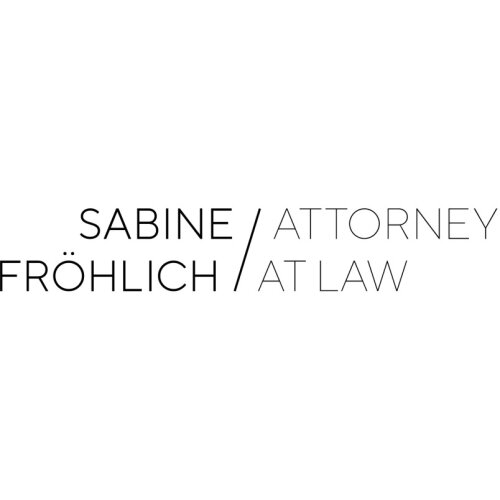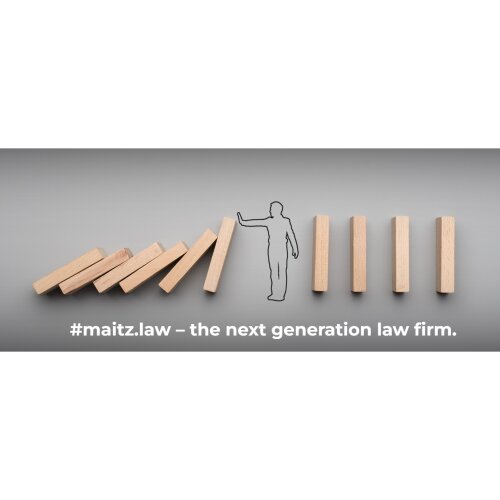Best Estate Planning Lawyers in Liechtenstein
Share your needs with us, get contacted by law firms.
Free. Takes 2 min.
Or refine your search by selecting a city:
List of the best lawyers in Liechtenstein
About Estate Planning Law in Liechtenstein:
Estate planning in Liechtenstein involves making arrangements for the management and distribution of your assets after your passing. It includes creating a will, establishing trusts, and naming beneficiaries for your assets.
Why You May Need a Lawyer:
You may need a lawyer for estate planning in Liechtenstein to ensure that your wishes are legally binding and to navigate the complex laws and regulations surrounding inheritance. A lawyer can help you minimize taxes, protect your assets, and avoid disputes among heirs.
Local Laws Overview:
In Liechtenstein, the laws governing estate planning are primarily found in the Liechtenstein Civil Code. Inheritance laws are strict and dictate how assets are distributed among family members. It is important to seek legal advice to ensure that your assets are distributed according to your wishes.
Frequently Asked Questions:
1. What is a will and why do I need one?
A will is a legal document that allows you to specify how your assets should be distributed after your passing. It is important to have a will to ensure that your wishes are carried out and to avoid conflicts among your beneficiaries.
2. What is a trust and how can it benefit me?
A trust is a legal arrangement where a trustee holds assets on behalf of beneficiaries. Trusts can help you protect your assets, minimize taxes, and provide for your loved ones in a controlled manner.
3. Can I contest a will in Liechtenstein?
Yes, it is possible to contest a will in Liechtenstein if you believe it does not reflect the true intentions of the deceased. However, contesting a will can be complex and it is advisable to seek legal advice.
4. How can I reduce estate taxes in Liechtenstein?
Estate taxes in Liechtenstein can be significant, but there are ways to reduce them through effective estate planning strategies such as gifting, establishing trusts, and charitable donations. A lawyer can help you navigate these options.
5. What happens if I die without a will in Liechtenstein?
If you die without a will in Liechtenstein, your assets will be distributed according to the laws of intestacy. This means that your assets may not go to the people you would have chosen as beneficiaries. It is essential to have a will in place.
6. How can I protect my assets from creditors in Liechtenstein?
There are various legal strategies to protect your assets from creditors in Liechtenstein, such as setting up irrevocable trusts, forming family limited partnerships, and using offshore structures. A lawyer can help you determine the best approach for your situation.
7. Can I appoint a foreign executor for my estate in Liechtenstein?
Yes, it is possible to appoint a foreign executor for your estate in Liechtenstein. However, it is important to consider the legal implications and requirements of having a foreign executor, including potential language barriers and administrative complexities.
8. Are digital assets included in estate planning in Liechtenstein?
Yes, digital assets such as cryptocurrencies, online accounts, and social media profiles are considered part of your estate in Liechtenstein. It is important to include provisions for these assets in your estate plan to ensure they are properly managed and distributed.
9. How often should I review my estate plan in Liechtenstein?
It is recommended to review your estate plan in Liechtenstein at least every five years or whenever you experience a major life event such as marriage, divorce, birth of a child, or a significant change in your financial situation.
10. How can I find a reputable estate planning lawyer in Liechtenstein?
You can find a reputable estate planning lawyer in Liechtenstein by asking for recommendations from friends, family, or professional advisors, contacting the Liechtenstein Bar Association for referrals, or conducting an online search for legal professionals specializing in estate planning.
Additional Resources:
For more information on estate planning in Liechtenstein, you can visit the Liechtenstein Bar Association's website or consult the Liechtenstein Civil Code. Additionally, you may find useful resources and guides on estate planning from reputable legal firms and financial institutions.
Next Steps:
If you need legal assistance with estate planning in Liechtenstein, consider scheduling a consultation with a qualified estate planning lawyer who can assess your situation, provide tailored advice, and help you create an effective estate plan that meets your specific needs and objectives.
Lawzana helps you find the best lawyers and law firms in Liechtenstein through a curated and pre-screened list of qualified legal professionals. Our platform offers rankings and detailed profiles of attorneys and law firms, allowing you to compare based on practice areas, including Estate Planning, experience, and client feedback.
Each profile includes a description of the firm's areas of practice, client reviews, team members and partners, year of establishment, spoken languages, office locations, contact information, social media presence, and any published articles or resources. Most firms on our platform speak English and are experienced in both local and international legal matters.
Get a quote from top-rated law firms in Liechtenstein — quickly, securely, and without unnecessary hassle.
Disclaimer:
The information provided on this page is for general informational purposes only and does not constitute legal advice. While we strive to ensure the accuracy and relevance of the content, legal information may change over time, and interpretations of the law can vary. You should always consult with a qualified legal professional for advice specific to your situation.
We disclaim all liability for actions taken or not taken based on the content of this page. If you believe any information is incorrect or outdated, please contact us, and we will review and update it where appropriate.
Browse estate planning law firms by city in Liechtenstein
Refine your search by selecting a city.
















